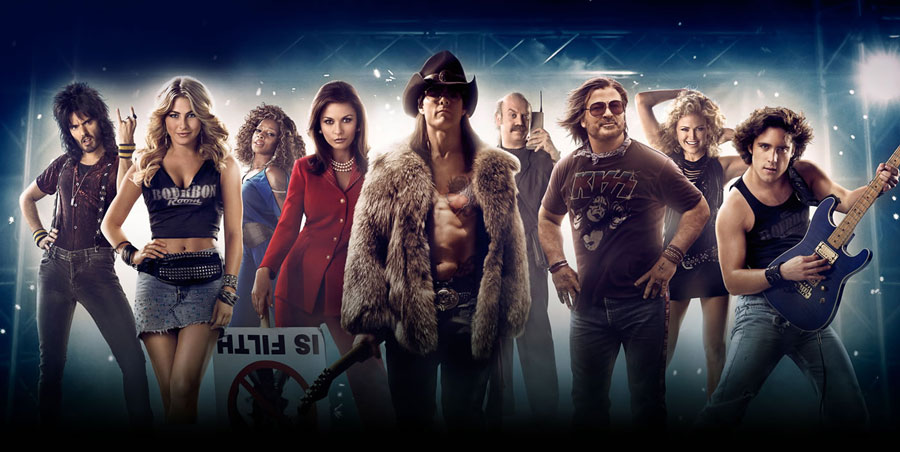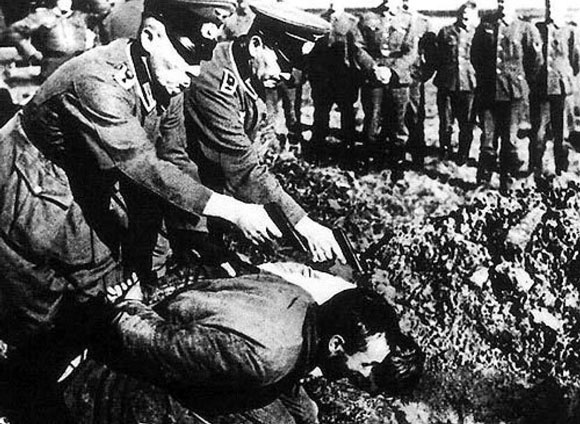A friend pointed me to this video. Good stuff. It’s a song by Cindy Lee Berryhill (who I’m not familiar with).
Musings on God’s Blessing

I like to challenge Christians to examine their assumptions, even if raising questions about their most cherished beliefs makes them mad. American Christians tend to go through the roof when you raise questions about God and country. I realize people will think I’m anti-America (which I’m most definitely not), but I’m more interested in being pro-Bible, in really understanding how God views things. So with that in mind, let me ask:
What does it mean for a country to have God’s blessing?
In praying for people, we often say, “God, please bless so-and-so today.” That’s a different kind of blessing, akin to singing “God Bless America.” I’m talking about the “special anointing” kind of blessing, the type of blessing many Christians claim America has had from the beginning. The type of anointing Israel had, that various prophets had, that the early apostles had, and that I believe Billy Graham had. Yes, I think God has blessed America in various ways, has rewarded us for our goodness, and has used us for his purposes. I see nothing unbiblical about that. But though I’ve been taught it my whole life in every church I’ve attended, I can’t accept the idea that America has been given a special anointing by God.
American Christians are part of the worldwide church, a universal body of believers, all of us equal children of God. Christians in other countries, I’m told, are sometimes amused by the arrogance of American Christians, who think their country holds a special place in God’s eyes. We assume that our power and affluence are proof of God’s blessing. Because, as Scripture shows, God is always on the side of the rich and powerful…right? But other nations and empires enjoyed extended periods in the sun–Babylon, Alexander’s Greece, Rome, the Incas and Mayans, Genghis Kahn’s China, England, Spain–and we don’t talk about them as possessing God’s anointing.
Or is America just, you know, special?
I’m sufficiently true-blue American to believe that yes, among the countries of the world, we are indeed special. I love my country, and am willing to fight and die for my country. But I’m not willing to insist that America enjoys some kind of special blessing from God, because I see no biblical precedent for that. And when people talk about God’s special blessing on America, I tend to take a contrarian approach.
In 1776, did God favor the Colonies, which supported slavery and would continue to support it for nearly 100 years, causing untold human misery and injustice, over England, which was ending the slave trade? Prior to the Mexican-American war, Mexico had ended slavery. But in defeating Mexico, slavery was able to spread to Texas, and took aim at the other Western states we “liberated” from Mexican rule. Was the spread of slavery pleasing to God? (Actually, based on Old Testament precedents, you could make a case for this very thing. But not under the New Covenant.) Maybe we won those wars on our own, because we were simply superior militarily.
In fact, numerous countries abolished slavery before the United States got around to it–Denmark, Norway, Haiti, England, Mexico, Spain, Holland, Argentina, Uruguay, Estonia, France, Greece, Chile, Sweden, Bolivia, Portugal, Venezuela, Prussia, Austria, Peru, Cuba. And after finally freeing the slaves (at great cost), we turned our attention to wiping out Indians. Is this the picture of a divinely anointed country?
I’ve heard Christians claim that America lost God’s blessing when we ended prayer in public schools, or after the Roe v. Wade abortion decision. To me, those are just opportunistic political arguments. We’ll hear the same thing if gay marriage becomes the law of the land. What’s the truth? None of us have a clue. We’re just putting words in God’s mouth.
In the Old Testament, the Israelites certainly enjoyed God’s blessing. It kind of came and went over the decades, depending on their leadership at the time and the attitude toward worshiping idols. Under Moses and Joshua and David, and occasional judges, God most definitely helped the Israelites succeed. They were favored.
It’s sad reading about King Saul. He had everything going for him, including God’s anointing. I picture him like Lyndon Johnson–tall, commanding, charismatic, forceful, talented. But things went tragically wrong, and it was Saul’s fault. God told Saul, “Now go, attack the Amalekites and totally destroy all that belongs to them. Do not spare them; put to death men and women, children and infants, cattle and sheep, camels and donkeys.”
Saul destroyed all of the people, but kept the best sheep and cattle. When the prophet Samuel showed up, Saul boasted, “I have carried out the Lord’s instructions.”
To which Samuel replied, “Then why do I hear the sound of sheep and cattle?”
Busted!
Because Saul didn’t completely carry out God’s command, God rejected him as King. He remained as King, but without God’s blessing. 1 Samuel 16:14 says, “The Spirit of the Lord had departed from Saul.” Chapter 18:12 adds, “The Lord was with David”–who was not yet king–“but had left Saul.”
Everything David did prospered. Success came easily. But not for Saul. He no longer had God’s blessing.
Success once came easily for America. Most everything we did prospered, even though some of it was evil (like our treatment of American Indians, not to mention–again–slavery). Today, we can still get our way, but mainly because we have such a powerful military and a dominant economy. We can force our will, without God’s help–which is how Genghis Khan and Alexander and the Romans extended their godless empires. They relied on pure human strength. We in modern-day America don’t require God’s blessing. We’re powerful enough on our own.
The Bible, from what I understand, never shows God bestowing any special anointing on any country except Israel. (Please correct me if I’m wrong.) Did America ever have some special blessing from God? Maybe, maybe not. Perhaps America, like other great powers throughout history, is mostly a synergy of resources and personnel and energy and circumstances. Yet, like England, we’ve been a spiritual standard-bearer for the world, spreading the Gospel across the planet, and I’m sure that counts for something with God. So maybe we did–or do–have some special extra-biblical blessing from God. But maybe not. Who can claim to know the mind of God on this? And therefore, can we justify perpetuating this concept of divine anointing?
In warfare, history is always written by the victors. In many wars, both sides are confident that God is on their side, but the winner is able to boast, “See, God was on our side.” I totally sympathize with Christians in other countries who think it’s arrogant for American Christians to think we are divinely favored, just because we are the biggest dog on the block–as if Jesus always sides with the powerful. Jesus liked to hang around the marginalized, the poor, the decidedly non-powerful. And I see no reason to think Jesus has changed his tune.
1 CommentMicrosoft’s Latest Killer Product
 Microsoft unveiled it’s new tablet, the Microsoft Surface, which I’m sure they expect to be an iPad killer. Like the Zune totally destroyed the iPod.
Microsoft unveiled it’s new tablet, the Microsoft Surface, which I’m sure they expect to be an iPad killer. Like the Zune totally destroyed the iPod.
The Surface runs a version of Windows 8. News flash to Microsofties: any product with the name “Windows” attached is suspect to a whole lot of people. Even Apple doesn’t describe its mobile iOS operating system as a version of the Mac OS; it’s a whole new thing. But Microsoft thinks that when people see the name “Windows,” they think quality, dependability, and user-friendly.
Me: I think Yugo.
Movie: “Rock of Ages”

L-r: Russell Brand, Julianne Hough, Mary J. Blige, Catherine Zeta-Jones, Tom Cruise, Paul Giamatti, Alec Baldwin, Malin Akerman, Diego Boneta (click to enlarge).
When I saw the trailer to “Rock of Ages,” I knew it was a must-see movie for me. I’ve always been partial to musicals, especially rock musicals. “Rock of Ages” delighted me in every respect.
For me, the plot of musicals is almost insequential, which explains my fondness for “Rocky Horror Picture Show.” I just love seeing talented people perform good songs. I never get tired of “Grease” (1978) or “Blues Brothers” (1980). The 2000s have seen some really enjoyable, and sometimes critically acclaimed, musicals: “Chicago” (2002), “Phantom of the Opera” (2004), “Rent” (2005), “Hairspray” (2007), “Enchanted” (2007), and “Mamma Mia!” (2008). At least, those are the ones I’ve seen. (I don’t count 2003’s “School of Rock” as a musical. It’s about music, but not a musical.)
“Rock of Ages,” like many movie musicals, originated as a Broadway show–in this case, a fairly recent one, debuting in 2006. It’s got a high-calibre cast, especially with Tom Cruise in the role of rock god Stacee Jaxx. If it’s a Broadway show, you can expect the quality of music to be very high. “Rock of Ages,” however, doesn’t use original music. Nearly every song is from the 1980s, mostly power ballads from big-hair bands. But they give the songs some neat twists, including a few excellent mash-ups a la Glee.
Here’s the plot.

Hough and Boneta singing.
Sherrie (Julianne Hough), an innocent girl from Oklahoma, arrives in Hollywood to chase her not-quite-defined dreams. It’s 1987. She lands a waitressing job at the Bourbon Room, a rock nightclub/concert venue. There she meets fellow worker Drew (Diego Boneta), who has dreams of rock stardom. Their relationship is the core of the movie.
Dennis (Alec Baldwin) owns the Bourbon, and Lonny (Paul Brand) manages it. They are “close,” and very old school when it comes to rock. Dennis is a throwback to the 60s, with his long salt-and-pepper hair and general unkempt appearance. The Bourbon is struggling financially.
Stacee Jaxx (Tom Cruise) is a rock legend, lead singer for Arsenal. He’s giving his final Arsenal concert at the Bourbon Room before going solo. Dennis hopes the concert can get them out of the hole. Paul Giamatti plays Stacee’s sleazy manager, who “discovers” Drew when Drew fills in as a warm-up act.
Rolling Stone reporter Constance Sack (Malin Akerman) comes to the Bourbon to do a story on Stacee, and a love-hate relationship blooms. Their relationship is a second storyline.
Catherine Zeta-Jones plays Patricia Whitmore, wife of the Los Angeles mayor. She’s determined to shut down the Bourbon, and has a personal vendetta against Stacee Jaxx. That’s a third, but minor, storyline.
So, you want to know: can Tom Cruise sing? Yes he can, and he sang a lot. He made a very credible rock singer. This is the type of musical where people can break into song at any moment. The first time Tom Cruise did that, it caught me by surprise. But he did a good job.
I was hoping Cruise wouldn’t have a cringe-worthy voice, like Pierce Brosnan in “Mama Mia!” Brosnan left me in fetal position, banging my head on the theater floor, beseeching God to make it stop. This particular James Bond could NOT sing. But Ethan Hunt, from Mission Impossible, redeemed the singing superspy.
The Broadway version, I understand, played Stacee Jaxx as an overweight slob, modeled after a latter-day David Lee Roth. The movie presented a totally different Stacee Jaxx. Cruise played him as a spaced-out, seemingly drug-addled (without the drugs) exhibitionist mouthing inanities. I thought it was a superb performance. And when Jaxx was performing on stage, I had little doubt that Cruise himself could probably go on tour.
There is no nudity or obscenity. However, there is sex, or at least wild passion, done in a somewhat comical way. And there is plenty of sexual innuendo. Stacee Jaxx oozes, and is surrounded by, sexuality. And there seemed to be a lot of kissing scenes.
Tom Cruise notwithstanding, Julianne Hough is really the lead character. She won the Mirror Ball trophy twice on Dancing with the Stars, and then struck out to become a country singer, a career which turned out so-so in a Kelly Pickler kind of way. But acting is where Hough belongs. She gave her dancing skills a major workout in 2011’s remake of “Footloose,” and “Rock of Ages” spotlights her singing ability. She lacks the powerful voice of rocker chics like Joan Jett or Pat Benatar, but it worked very well in this musical. And then there’s the whole “innocent girl” look which made her perfect for this part.

Tom Cruise as Stacee Jaxx.
The movie begins with Hough’s character arriving in LA on a bus. She begins singing Night Ranger’s “Sister Christian,” and then the bus driver chimes in, then a passenger, and before long, the whole sleepy bus is singing along. It’s a great opening scene, which quickly morphs to Drew singing at the Bourbon Room. Diego Boneta, a Mexican-born actor, can really sing. I liked his chemistry with Julianne Hough, and their voices meshed well.
Catherine Zeta-Jones dominated the few scenes she was in. The most memorable was a song-and-dance number in a church, “Hit Me With Your Best Shot,” where she rallies church women against the evils of rock music. Later in the movie, she’s part of an excellent mash-up of “We Built This City” and “We’re Not Gonna Take It” (Russell Brand leading the “We Built This City” part).
I should mention, positively, the perfomances of Malin Akerman (a Swedish model, actor, and former lead singer for a rock group), and Mary J. Blige, owner of the exotic-dancing Venus Club. Akerman’s interplay with Cruise is, oddly, fascinating. Blige’s role is not developed, but it’s a pleasure to hear her sing. Also, British comic Russell Brand (he of the recent divorce from popstar Katy Perry) also had a terrific part.
My favorite mash-up was Hough and Boneta singing “Juke Box Hero” (from Foreigner) interspersed with Baldwin and Russell singing “I Love Rock ‘n’ Roll.” Very enjoyable and fun.
I counted three songs by Foreigner, and two each from Poison, Journey, and Twisted Sister. For the sake of the movie, we had to pretend that Drew wrote “Don’t Stop Believin'” (“Just a smalltown girl, living in a lonely world…”), well-known as pretty much the Glee theme song (which they mash with another Journey song, “Any Way You Want It”).
Other bands that contributed songs included Joan Jett, Guns & Roses, Pat Benatar, Warrant, Bon Jovi, Whitesnake, REO Speedwagon, the Scorpions, Starship, Extreme, and Quarterflash. Pat Benatar’s “Hit Me With Your Best Shot” was released in 1979, but every other song came from the 1980s (a couple of them later than 1987, when the story took place).
“Rock of Ages” was high energy most of the way, and all three plotlines were engaging. The climactic concert scene was not quite as climactic as it could have been, but I’m not complaining too much. I would eagerly watch “Rock of Ages” again, and I’m sure that when it reaches TV and I happen upon it while channel-surfing, I’ll stop and get sucked right in.
2 CommentsThe Mac II at Age 25
 The Macintosh II is celebrating its 25th anniversary. That was my first Mac, back in 1988. Well, it wasn’t actually mine, but for work. I, personally, owned a Mac SE, one of those all-in-one boxes.
The Macintosh II is celebrating its 25th anniversary. That was my first Mac, back in 1988. Well, it wasn’t actually mine, but for work. I, personally, owned a Mac SE, one of those all-in-one boxes.
The Mac II was the first Mac with an open system–a beige box users could open up, with expansion slots, and a separate monitor.
For the next several years, I produced a monthly magazine on the Mac II. I used Pagemaker, laying out everything on screen, and used a Laserwriter II for printouts, which I sent to a commercial printshop.
Compare that to the AT&T PC I’d been using for about five years. Two 5.25″ floppy drives, no hard drive, and the clunky DOS operating system (which is redundant, I realize, since DOS stands for Disk Operating System). I composed articles in Wordstar, sent a floppy to a commercial printer, and they sent back long photo-typeset strips of paper. I then spent the next two weeks hunched over a light table laying out the articles before sending everything to the printshop for final printing. It was like farming with oxen.
The Mac II established the Mac as the computer of choice for graphic artists and publishing professionals. Microsoft desperately introduced Windows in an attempt to mimic the Mac. Today, they’ve got it down pretty well. But back in the late 1980s, Microsoft wasn’t even close. Not even in the same universe. Compared to the Mac, Microsoft was a Third World country. I don’t begrudge people choosing a PC today. But just recognize that there was a time when the Mac was ridiculously far ahead (compared to a mere “very far ahead” today).
The Mac II had 2MB of RAM, and a mammoth 40MB hard drive (who would ever need more space than that?). Instead of using those wobbly, fragile, and highly unreliable 5.25″ floppies, the Mac II sported two slots for the hard plastic 3.5″ floppy (which weren’t floppy) disks. And then there was that 12-inch color monitor, a huge improvement over the green-and-white display on my AT&T PC.
The operating system, OS6, was terribly primitive compared to today’s Macs. Unless you used the clunky Multifinder, you could have only one program open at a time. Yet, it was very intuitive, very user-friendly–a quantum leap over the cavemanish DOS system I had been using on the AT&T PC. The commands were consistent from program to program, and it just made sense.
That Mac II was the most expensive computer I’ve ever used–over $6000 in 1988 dollars, or $13,000 today. Now, I can get a loaded, top-of-the-line Mac Pro tower for less than we paid for that Mac II. Such is progress.
Since then, I’ve gone through a whole bunch of Macs, both at home and work–the Mac SE, 2Si, Power Computing clone tower, Quadra 800, PowerMac G3, Power Mac G4, Power Mac G5, and now a Mac Pro. Plus three different laptops, starting with a G4 aluminum back in 2001. Yes, I’m a Mac fanatic.
Musing about Freedom from a Bumper Sticker

At a stoplight, I noticed this bumper sticker on the car ahead of me: “I’m proud that my son is fighting for our freedom.”
I think that parent should be very, very proud. I appreciate this son serving in the military to protect and defend our country. I think it’s a calling worthy of high honor.
But as I drove on, I parsed out the words in that bumper sticker. Nothing to criticize that parent or that son. Just some harmless musing by a person who has never worn the uniform, and had some thinking time to fill.
My thoughts focused on the word “freedom.” Is that son really fighting for the freedom of the United States? I decided–and I’m totally open to being wrong about this–that freedom isn’t the issue. Our freedom isn’t threatened by Al Qaeda or the Taliban. No rag-tag bunch of terrorists are going to take over the United States and subjugate the citizenry. Those soldiers in Iraq and Afghanistan are, to use the famous words from “A Few Good Man,” standing on a wall. In the fight against Al Qaeda, they are protecting us from attack, pursuing an enemy who threatens us with harm.
Frankly, I think Homeland Security is a greater threat to American freedom than anything in Afghanistan. In our post-9/11 frenzy, we ceded a scary amount of authority to the federal government, which can look into our lives in unprecedented ways. We have greatly expanded the government’s right to detain citizens, accumulate information about every facet of our lives, and keep tabs on everything we do. After 9/11, we went way, way overboard.
But, back to our wars.
The Revolutionary War was all about freedom. So was the War of 1812, a war against conquering invaders.
The Mexican-American War, I would say, was a war of aggression on our part. (Not to be confused with the Texas War of Independence, which included the Alamo.) It was basically a land grab.
I’m not sure how to categorize the Civil War. Both sides were fighting for freedom–the North to (at last in part) free the slaves, the South to preserve states rights and their freedom from federal intervention in their affairs.
World War I doesn’t strike me as being about defending our freedom, but it seems to have been in our national interests. Soldiers often die not in defense of freedom, but for other worthy causes which require deadly force. The Great War falls in that zone. World War II, on the other hand, was indeed about freedom…and much more.
What about Korea and Vietnam? In the context of the Cold War, with communism seeking to dominate the world, I can easily make the argument that it was ultimately about freedom. We were trying to keep early dominos from falling, recognizing that the US would be the last domino to topple. At least, that’s how people thought at the time.
The first Gulf War? Our freedom wasn’t threatened, but we were needed to right a terrible wrong (Saddam Hussein’s invasion of helpless Kuwait). And because of our dependence on oil, we had vital strategic interests in that region.
Now we come to Afghanistan and Iraq. Neither, in my book, involved defending our freedom. But that doesn’t mean fighting those wars was invalid.
We plunged into Afghanistan to eliminate a proven threat. We were attacked, and we retaliated.
Iraq was another story. I’m not going to argue whether or not we should have invaded Iraq. I’m just going to say this: it wasn’t about American freedom (remember, it was called Operation Iraqi Freedom). You can make a case, based on the presumption of Hussein building nuclear weapons, that Iraq could cause us immense harm. But take away our freedom? No, that wasn’t at stake.
Now, we’re mostly left with Afghanistan. The Al Qaeda of 9/11 is pretty much gone, vanquished. Now we are primarily fighting in a civil war against the Taliban. In that sense, the bumper sticker isn’t accurate–that son is not fighting to preserve American freedom. He’s fighting another country’s internal war. Which can still be a worthy cause…or not.
But, as I continued driving and thinking about this, I came to a conclusion which affirmed the bumper sticker. Whether or not we are at war, American soldiers are the first line of defense in safeguarding our freedom. Every man or woman who dons the uniform is prepared to defend my freedom. They may not be fighting for our freedom in Afghanistan, but if a threat to American freedom arises, they are ready to stomp it down. A contrarian could argue that the Constitution is our first line of defense of freedom, or perhaps the judicial system. But when push comes to shove, it’s those men and women in uniform, expertly trained to inflict violence, who make the difference.
And so, in a larger sense, that bumper sticker was indeed accurate. They may not be currently fighting for our freedom, but they are prepared and eager to do so. At least, that’s where my musing ended up.
When God’s People Commit Massacres at God’s Command

I like to search between the lines of Scripture, to think and wonder about biblical stories from fresh angles, searching for meaning and insights which I’ve never heard in sermons. And sometimes, that can be very uncomfortable. I cling tenaciously to a God who is fair, just, and loving. But sometimes, meditating on Scripture–on what exactly happened, and how–can lead to disturbing places.
I recently finished reading through Joshua, and I was struck by this: God repeatedly told the Israelites to massacre people. To wipe out entire towns–men, women, terrified children, even livestock. And babies. Of course, I knew this from a childhood spent in Sunday school. But as an adult I’ve lived in a world where horrific massacres have occurred in my lifetime. I’ve seen and read about these atrocities, stared at the photos, and wondered what kind of people could do that. And here in Joshua, the “what kind of people” are God’s people.
Actual Jews carried out these massacres–Jewish sons and husbands and nephews and brothers. I wonder how it affected them, as they wiped out entire populations of living, breathing people. There was nothing antiseptic about it–no guns to kill at a distance. It was all up close and very personal, with edged weapons and clubs.
Did it bother them? I sure hope so.
Have you thought about that before? About the actual process of killing hundreds of women and children? Have you probed that far between the lines and let your imagination run? The Bible is the story of God and his people. So what can I learn about God from these massacres, and how can I reconcile it with a God who, I firmly believe, is fair, just, and loving?
When those walls of Jericho fell down, the Israelites stormed the city. Jericho’s soldiers would have died fighting or buried in rubble. But then there would have been groups of women and children and the elderly scattered throughout the city, just trying to hide or get away, pleading for mercy. Mothers holding toddlers in their arms. How did the Jews go about killing them? Ever ponder that?
I vividly remember the horror of the Sabra and Shatilla refugee camps, in 1982, when “Christian” militiamen slaughtered a couple thousand Palestinians, as Israeli forces watched (and fired flares over the camps to illuminate them at night). Women were raped and killed, boys castrated and even scalped, Christian crosses carved into bodies, countless babies and toddlers ripped apart and thrown into piles. I remember, as a young adult, staring at length at the photos of the aftermath.
Pol Pot and his Khmer Rouge killed millions in Cambodia during the 1970s. There was the Rwanda genocide in 1994 of nearly a million people. There was Bosnia. Shiites killing Sunnis and Christians in Iraq, and Sunnis doing plenty of the same. And there was My Lai, the very first massacre I remember–small scale by comparison to some of these others, but especially troubling because it occurred at the hands of my own countrymen.
People massacring other people–not in battle, but to exert power and demonstrate hatred.
What would I think if several million Mexicans crossed the Rio Grande to settle in Arizona, and began wiping out everyone in town after town–thousands of people, men, women, and children. Babies. Everyone. What if they rode into Tucson and just killed everybody living there. No exceptions.
As the Nazis swept through Russia, in each city the SS would round up all of the Jews, take them outside the city, and slaughter them. Men, women, children. Town after town, city after city. Hundreds of thousands of people. “Cleansing” the population of Jews.
That’s basically what the Israelites did, under orders from God. Is it okay if it bothers me? If I’m not able to reconcile wholesale slaughter with a fair, just, and loving God? It doesn’t damage my faith or my love for God, whose ways, I realize, are far different from our ways. But it does bother me.
I understand what God was trying to do–to clear the land he had promised his Chosen People, to remove sinful influences, especially idol worship. The fact that they quit before the job was done came back to haunt them later, causing all kinds of problems–idol worship, years of submission and subjugation to Philistines and other peoples. They never fully possessed the land, as God commanded them to do. But you can still call it genocide.
After conquering a town, I assume the Israelites would gather the survivors someplace, and then proceed to kill them. Men sheltering their families. Children clinging to their mother’s gown, crying. Kids watched as other kids, and their parents, and friends, were killed before their eyes…and knowing their turn would come. Imagine the weeping, the hysteria, the screaming for mercy. Imagine the Israelite soldiers who had to ignore it and simply kill, kill, kill.
How did they do it? There was no bullet in the back of the neck, as the Nazis did it to the Jews. Did they slit their throats? Chop off heads? Run them through the heart with a spear or sword? (The Khmer Rouge liked to use a dual bayonet thrust through the heart–one from the front, one from the back.) How did the Israelites carry out these mass slaughters, in town after town? What was their system? When a group of women and children were found huddled fearfully in a bedroom, how did they go about killing them?
Did some soldiers refuse to take part? The book “Ordinary Men” tells the story of a German reserve police battalion that was sent to Poland to assist in exterminating Jews. They would round up Jews, take them to a remote place, break them into small groups, and then execute them group by group. It could take all day. Some Germans never participated; their commanders allowed them to go somewhere else until the killing was done. Others participated for a while, but finally said, “I can’t do this anymore,” and they simply walked away. They would go sit in a jeep, light a cigarette, and try to ignore the gunfire and screaming occurring down that path leading into the forest.
I hope, with all my heart, that the Israelite soldiers were scarred by the experience. That they had nightmares about it. That they sometimes woke up in a cold sweat thinking about the baby they had skewered, or the young boy, or the pregnant mother, or the newlywed couple who thought they had their lives before them. That when a soldier returned home to his own family, seeing his own daughter reminded him of the bawling little girl whose throat he had slit; and seeing his pregnant wife reminded him of the pregnant women and newborn babies whom they had so recently slaughtered at God’s command. I hope these memories stayed with them for the rest of their lives. Because that means they were humans, not psychotic killing machines. I hope they did God’s bidding not because it was enjoyable, but purely out of obedience.
I’m also confident that it bothered God.
Because my God is fair, just, and loving, and does not normally require stuff like this. The fact that I can’t understand it only tells me that there is so much more to learn about God.
I find it interesting that Numbers 19:11 says, “Whoever touches the dead body of anyone will be unclean for seven days.” If you came in contact with a dead body, you had to be isolated, perhaps outside the camp, for seven days. In the case of soldiers, perhaps there was some therapeutic value to this. Rather than wipe out a town of people and then immediately go home to their families, they had a week to decompress from the horrors they had inflicted.
Again–I understand why God commanded the Jews to massacre the Canaanites. And I firmly believe in a God who is fair, just, and loving. Reading Joshua doesn’t change that. I have difficulty squeezing a genocidal God into my “fair, just, and loving” picture, but I know there is a proper place which I can never really comprehend. But although I can’t fully grasp God’s eternal purposes, I can grasp the idea of a young Israelite soldier killing a helpless child who is begging for his life. That happened, over and over. And I don’t think God minds that it bothers me.
Obama Speaking About His Faith
I get weary of people insisting that President Obama is a Muslim, or of pointing to some public policy stand as proof that he can’t possibly be a Christian. Obama has expressed his Christian faith openly, and perhaps never as clearly as he did in 2008 during the interview with Rick Warren.
Both Obama and McCain were asked the same question–what it meant to them, on a daily basis, to be a Christian. Obama spoke at some length, using biblical concepts and quoting Scripture. McCain simply used some catchwords in saying, “It means I’m saved and forgiven,” and then he told a minimally relevent story from his POW days.
I was impressed with Obama’s response. I realize you can fake this stuff. But I sensed that Obama had a clear understanding of what the Christian faith was about, and expressed it in much the same words that I would use.
Yes, Obama supports pro-choice and gay marriage policies which I don’t consider consistent with my faith (though in the context of public policy in a pluralistic nation, I’m much more lenient). At the same time, there are many Republican stands which I consider inconsistent with my faith–attitudes toward the poor, coddling of the rich, support for torture, anti-environmental stands, and others. Neither party has a monopoly on being biblical.
Anyway, I tracked down a Youtube video of the Warren interview. That’s it above.
3 CommentsCapital Punishment: No Room for Error
I’ve been against capital punishment since the 1980s. My objections are biblical in nature–not based on a Bible statement clearly forbidding capital punishment, because there isn’t one, but based on biblical principals consistent with the life and teaching of Jesus. Other Christians disagree with my convictions, and that’s fine.
But then there are stories like this from Salon, about three persons executed in recent years in the US who were most likely innocent. This stuff only happens to poor people. Since our judicial system is weighted so strongly against the poor, we have yet another reason for opposing capital punishment.
Can you imagine a rich, or even middle class, American of any race being wrongfully executed?
How to Create a Kingdom
 Last night’s reading included 1 Samuel 10, where Saul is made king. And I mused about the startup costs of having a king.
Last night’s reading included 1 Samuel 10, where Saul is made king. And I mused about the startup costs of having a king.
Before, the Israelites had been a collection of, basically, semi-independent states with no central authority. Not even states–just tribes. A confederation of sorts. Sometimes a “judge” would rally everyone to defeat an enemy, of which there were many. But then they’d go back to doing their own thing in their own territory.
But now, this farmer named Saul had been plucked out of the cornfields and annointed King. But there was no “kingdom” infrastructure. They had a lot of scurrying to do.
- Where was the King to live? A king needs a palace. Quick–hire an architect!
- A King needs an entourage–attendants and deputies and cooks for state dinners and a person to hold an umbrella over his head. Maybe a jester or two. That means lots of recruiting and interviewing and vetting and writing of job descriptions.
- A King needs an expense account.
- And who is going to pay for all of this? Somehow, they would need to raise money from the people, which meant a tax system.
A Kingdom is a complicated thing. You don’t just snap your fingers and Presto! you have a Kingdom. Lots of startup costs. Lots of stuff to organize from scratch. Kind of like starting a new church, but with pageantry.
Of course, if you’re the King, you can, indeed, pretty much snap your fingers and make things happen. But first, there need to be people within hearing distance of the snapping. I imagine many Israelites wanted to participate, to get in on the ground floor of this new venture, maybe position themselves for knighthood or some profitable skimming. So along with everything else, I suppose you need a patronage system.
When Saul started out, it was just himself and Samuel. This was a big deal for a farmer and an old guy to pull off. I wish the Bible explained how they went about creating a Kingdom. It would have made an interesting case study.
1 Comment




